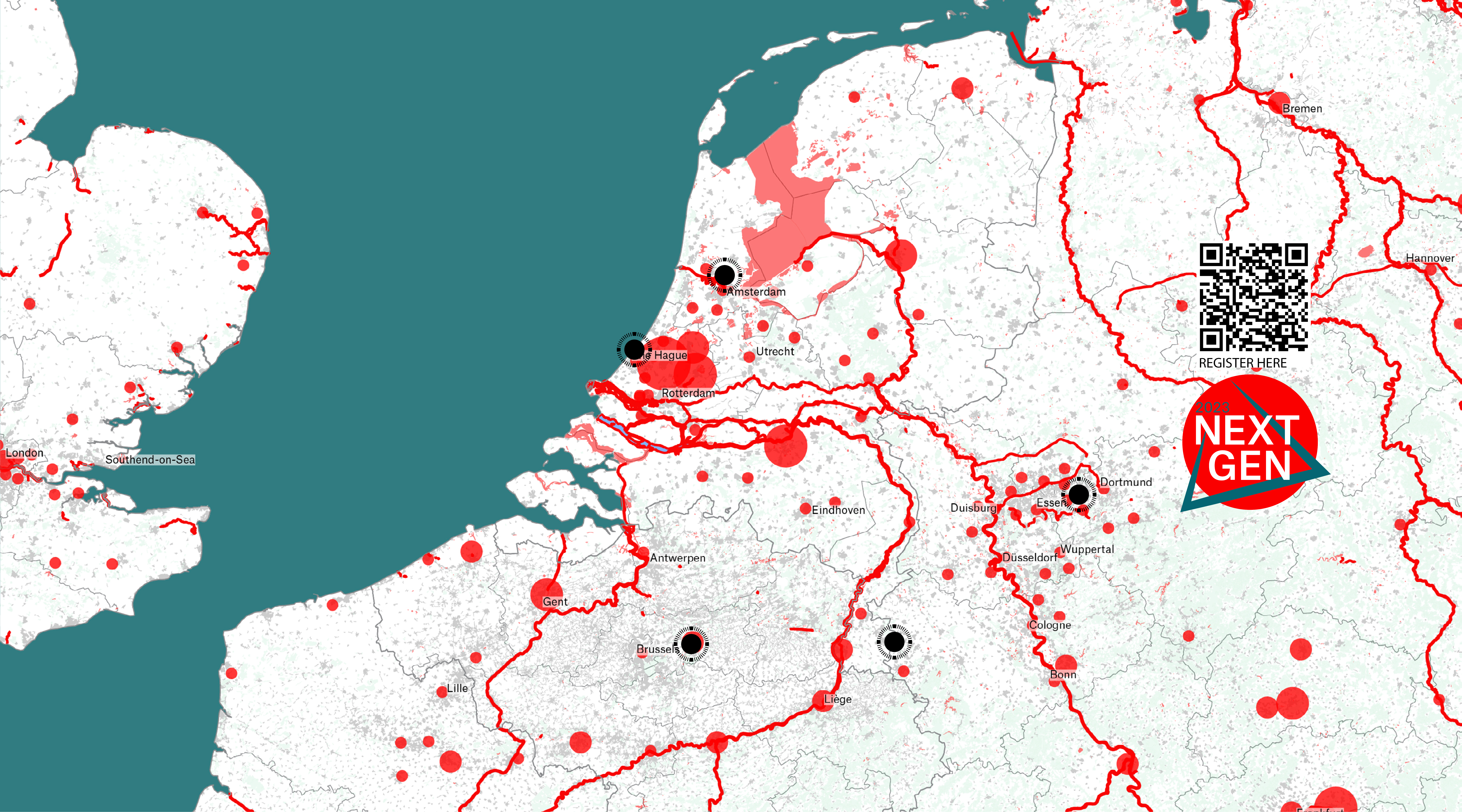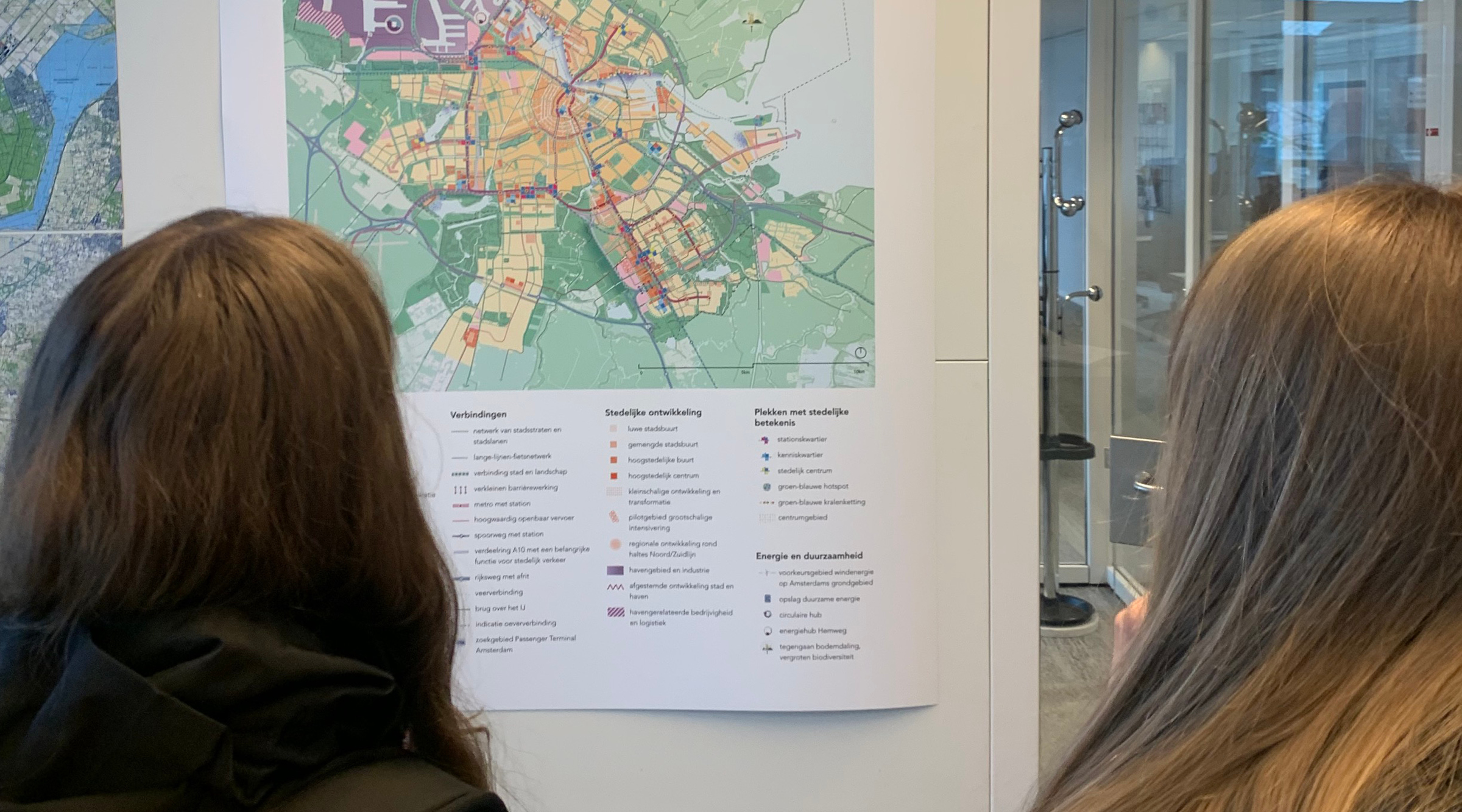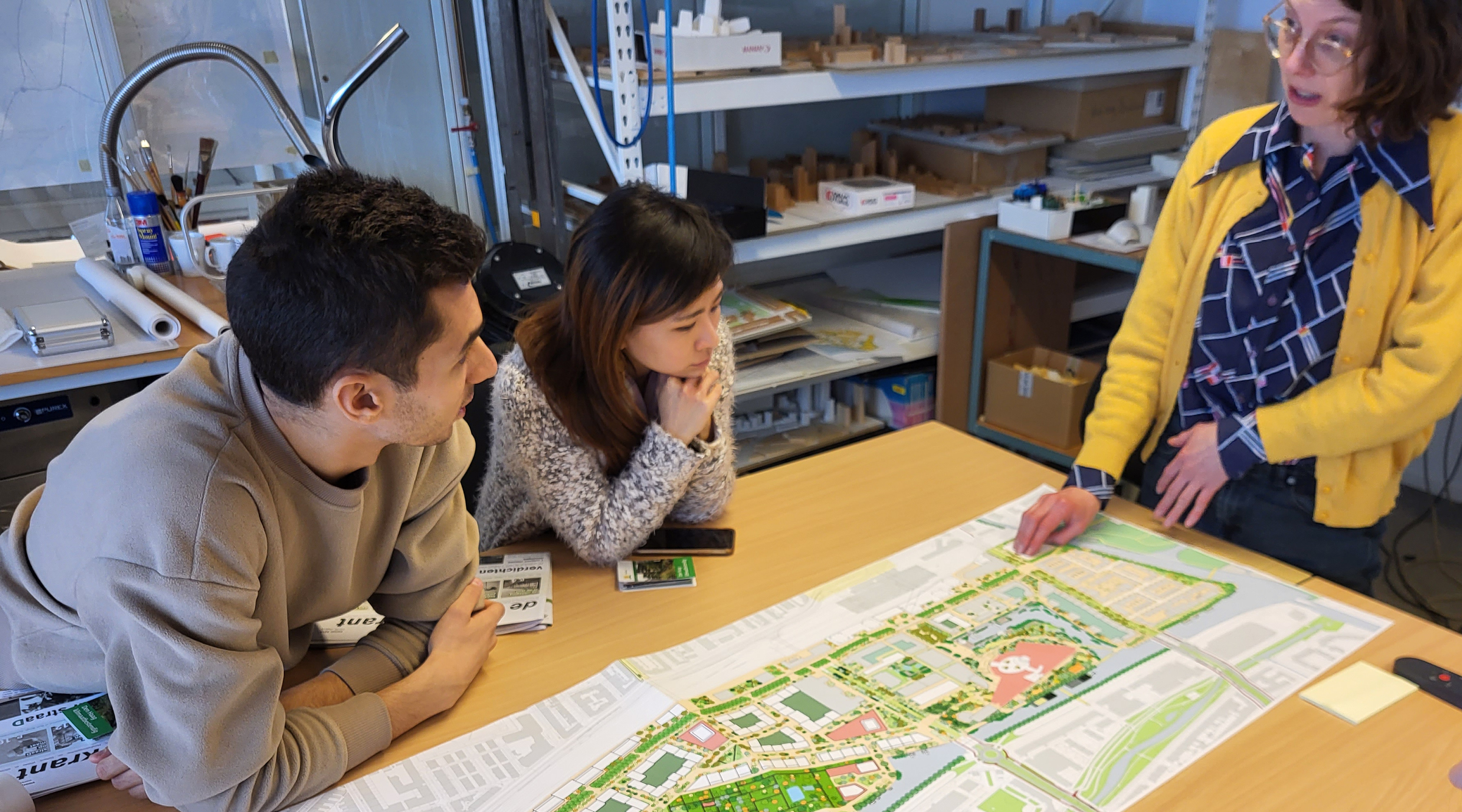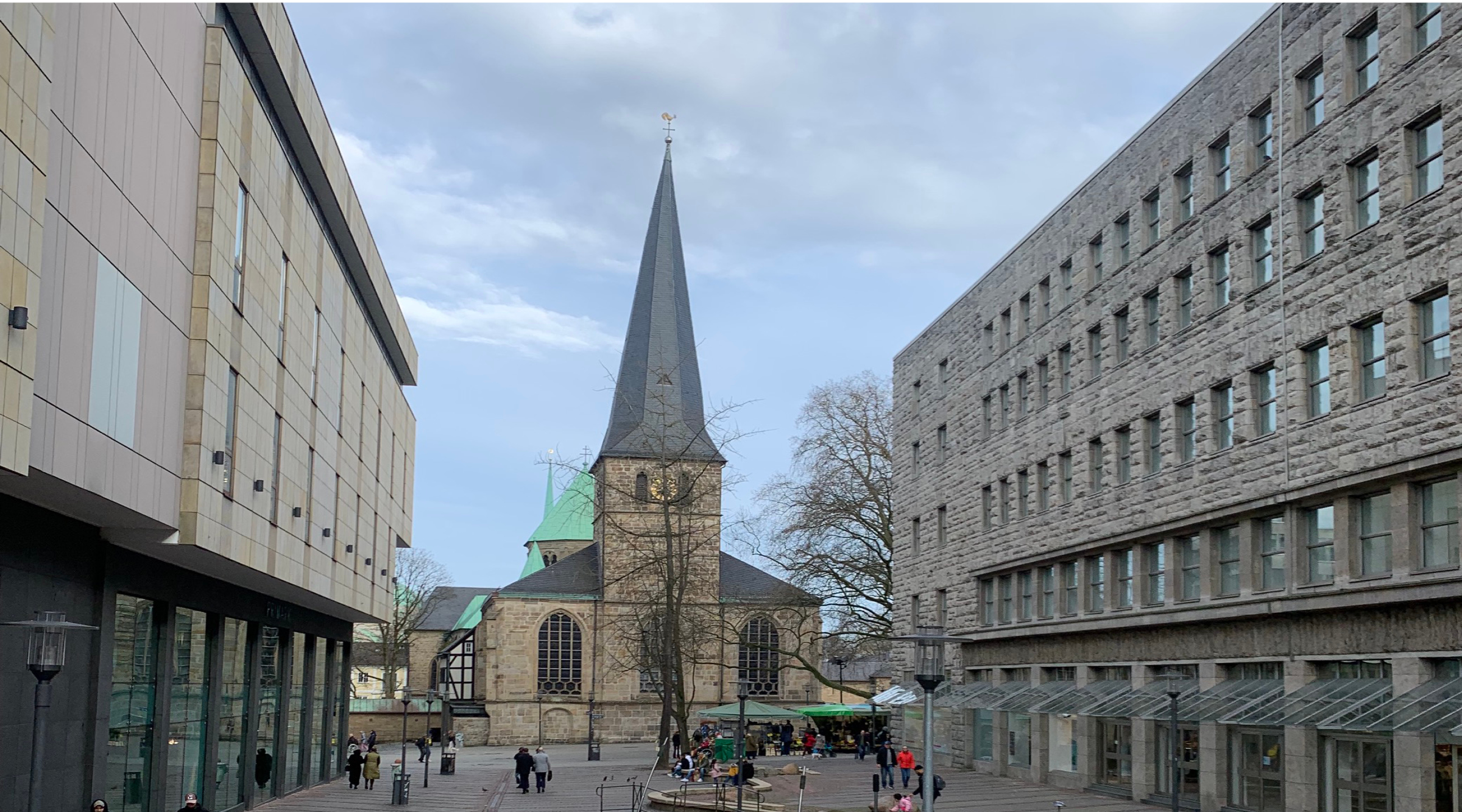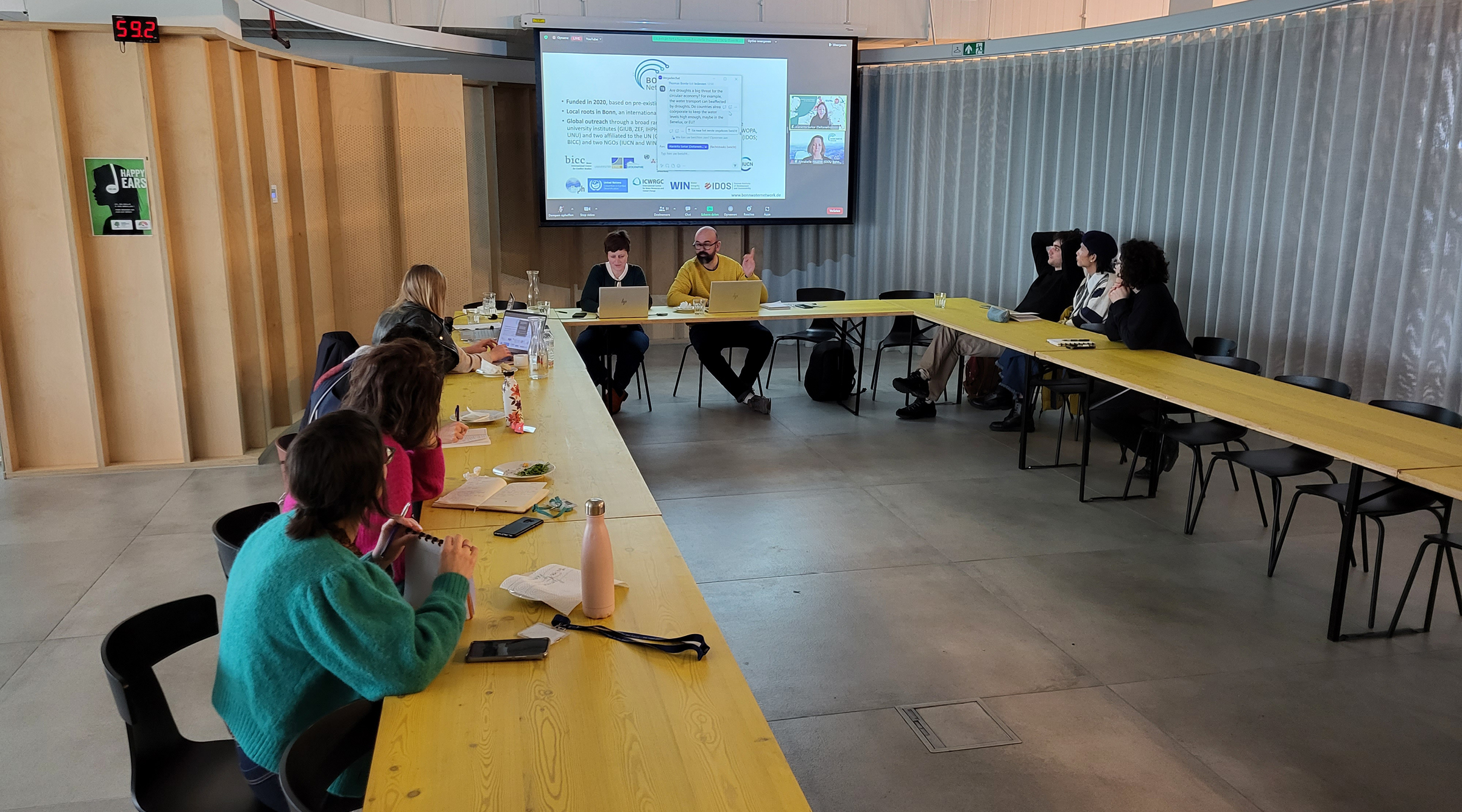Online Lunch Forum and Open Office Days
Reflections from Eurodelta Podium 2023
18 april 2023
We are proud to present the results from three Lunch Forums of Next Generation 2023. We will be hosting the workshop with young designers, planners, architects and spatial thinkers on the 11-12 May to apply the learnings from the lunch forum in the context of Eurodelta.
Lunch Forums for the Next Generation Podium for Eurodelta 2023 were hosted by the SURE Network under the umbrella of Delta Diaries as a part of NY Water Week.
20 March – Circular Delta: Accelerating the circular transitions
21 March – Accessible Delta: Connecting through corridors
22 March – Fluid Delta: Cooling and Flowing water networks
Lunch Forum 1, Circular Delta
Accelerating the circular transitions
Watch the first Lunch Forum here
This lunch forum focused on circular economic exchange and sustainability in the built environment.
“Who would be better equipped to bring these out of the box approaches than this next generation. I think the addition of the Next Generation Podium of the last 2 years has evidently proven that this is really an inspiring and effective way of engaging power of thought and power of imagination that we really need in these times.” – Erik Pasveer
Peter van Assche (Bureau SLA), through his project ‘The People’s Pavilion’, emphasized on the necessity for transitioning to a circular systems thinking in the architecture domain by reinventing the way of building.
“The People’s Pavillion is made from 100% borrowed materials. This is a new phase for circular economy.” – Peter van Assche
Markus Steppler (DERIX-Gruppe) spoke about the circular use of wood where there is a possibility of repurposing 50% of the material used for construction.
“If we take back new materials from the biological circle and if we take used material out of the technical circle, we can theoretically build up an unlimited recourse.” – Markus Steppler.
Stephan Kampelmann shared with us his analysis of the flow of wood in urban development. His aim is to reduce the import and export of wood and use local materials.
“The objective of today is not anymore to extract wood as building material, the object of today is to have a strong ecosystem and a strong diversified forest.” -Stephan Kampelmann.
Through this lunch forum, we learned how transnational exchange informs circular choices in different scales for integrated sustainable development. This can be done on object level (use and repurpose local materials), network level (circular economy as an agenda for sustainable development), and systems level (create sustainable employment opportunities).
Lunch Forum 2, Accessible Delta
Connecting through corridors
Watch the second Lunch Forum here
The second Lunch Forum focused on cross-border river corridors impacting infrastructural decisions in mobility.
“Mobility is what moves us, we are all about movement and exchange. Exchange of knowledge, goods and practices which all come along with movement.” – Dr. Cecilia Braun.
Luuk Boelens (Ghent University) spoke about the implementation of the sustainable railway transport infrastructure for reduction in CO2 and noise pollution.
“About 20 cities within the Rhine area have low emission zones, which can easily move towards zero emission zones, in the coming ten years. That would have a major impact, not on the cities themselves, but also on the car mobility towards and from those cities.” – Luuk Boelens
Frank Joneit (Regionalverband Ruhr) expressed the importance of improving the accessibility of transport internally, externally, the urgency for environmentally compatible transport and making sure that there is equal accessibility for transport.
“It’s quite a challenge to get all these regional and local players together to get to one target, reducing CO2 emission and getting all the way down to zero emissions.” – Frank Joneit.
This lunch forum nudged us to think about implementing innovative tools and recommendations for cross-border mobility and infrastructure learning from research. One recommendation that was brought up multiple times throughout the lunch forum was that there needs to be a shift from aviation travel towards train travel. Prioritizing train travel by strengthening high-speed lines infrastructure would eventually strengthen public transport, smoothen cross-border connections within the Eurodelta and reduce and impact that mobility has on the ecological corridors.
Lunch Forum 3, Fluid Delta
Cooling and Flowing water networks
Watch the third Lunch Forum here
The last lunch forum – Fluid Delta dove into the influence of water networks as a social and geographical identity.
“This year we are going to organize a Benelux water day, focusing on quality and quantity of water and a dream of ours is to see if we can have a digital twin of our main rivers, then you can enact scenarios” -Yvonne Havenga
Carola Hein (Leiden Delft Erasmus University) stated out four main points, the importance of water fluid, the constant change and transformation of these water deltas, mapping of the delta to understand the cause and effects of ports and waterway and finally the connection between water management and lifestyles.
“In my opinion this all means that we need to take water management and lifestyles as the foundation of design. So, it’s not what management purely as a discipline in the public sector that takes care of getting drinking water and protecting us, but it should be a way of living with water that is present for all people.” – Carola Hein
Ana de Cannière (BMA) exhibited a prospective spatial study about how to organize a more water conscious transformation with the built environment in Brussels.
Annabelle Houdret (Bonn Water Network) focused on topics such as integrated water resource, flood risk management, Eco hydrology, etc.
“The people and ecosystem are becoming more vulnerable, and risk is going up to various types of hazards. And what we want to do is encourage more sustainable approaches that can help to reverse this trend and avoid a collapse of the delta.” – Annabelle Houdret
Jack O’Connor (UNU) shared about the living delta research in Southeast Asia, focusing on how the delta can become a social ecological system where people and nature are bound together.
Fluid Delta reaffirmed that local identities (social and geographical) can be represented and retained with cross border collaborations. By considering landscape as an asset for the built environment, we can connect different communities through ecology, culture, and history in the form of living labs. Ecosystem services have the power of informing socio-economic patterns – this can be achieved through both bottom-up and top-down approaches.
Conclusion
The different speakers during each lunch forum brought their knowledge and expertise on the table from varied sectors of spatial planning. Coming from 3 different countries urging for a strong transnational exchange aided all the themes to be tackled with a transnational governance approach with a strong focus on cross-border collaboration. One prominent statement that can be understood between all the countries who are part of the Eurodelta is that they all face very similar issues and this year’s main topics of Circular Delta, Fluid Delta and Accessible Delta exhibited just that.
Additionally, participants were given a chance to know more about the practice through the open office days held across Eurodelta: Municipality of Amsterdam (Netherlands), Municipality of Den Haag (Netherlands), Regionalverband Ruhr (Essen, Germany) and perspective.brussels (Belgium).
Join us on 11-12 May 2023 to apply all these inspirations and learnings in the online workshop of Next Generation Podium. As a student or young professional, you can join both the days to take active part in the workshop. While as an expert, you are welcome to join the opening and closing ceremony of the symposium. Register here.
